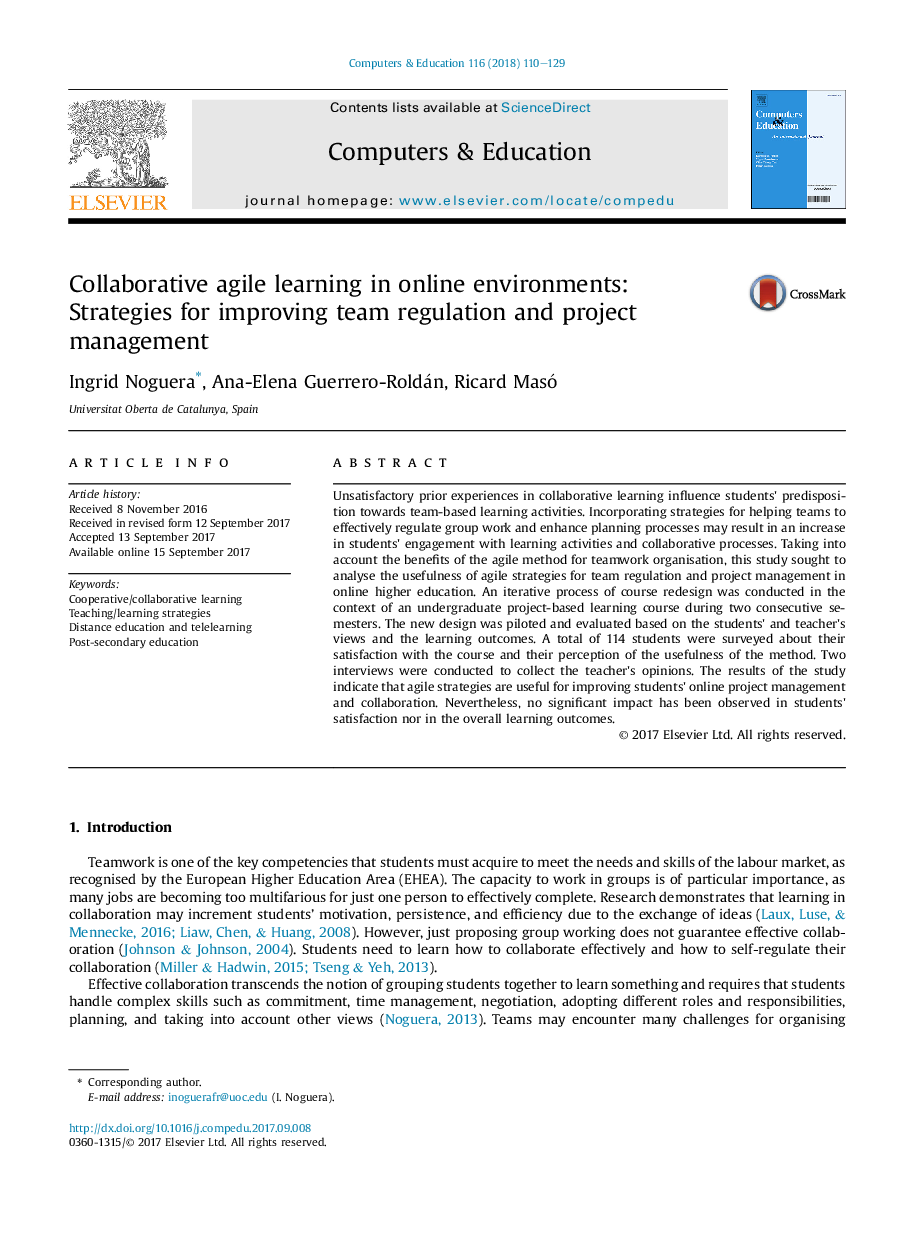| Article ID | Journal | Published Year | Pages | File Type |
|---|---|---|---|---|
| 4936775 | Computers & Education | 2018 | 20 Pages |
â¢Distributing responsibilities and rotating roles facilitate group dynamics.â¢Regular meetings help coordinating work and anticipating deviations.â¢The task lists and the work cycles benefit project management and planning.â¢Teachers propagate the agile philosophy and implicate students in groups and tasks.â¢Students' commitment and monitoring and the Project Manager role must be enhanced.
Unsatisfactory prior experiences in collaborative learning influence students' predisposition towards team-based learning activities. Incorporating strategies for helping teams to effectively regulate group work and enhance planning processes may result in an increase in students' engagement with learning activities and collaborative processes. Taking into account the benefits of the agile method for teamwork organisation, this study sought to analyse the usefulness of agile strategies for team regulation and project management in online higher education. An iterative process of course redesign was conducted in the context of an undergraduate project-based learning course during two consecutive semesters. The new design was piloted and evaluated based on the students' and teacher's views and the learning outcomes. A total of 114 students were surveyed about their satisfaction with the course and their perception of the usefulness of the method. Two interviews were conducted to collect the teacher's opinions. The results of the study indicate that agile strategies are useful for improving students' online project management and collaboration. Nevertheless, no significant impact has been observed in students' satisfaction nor in the overall learning outcomes.
